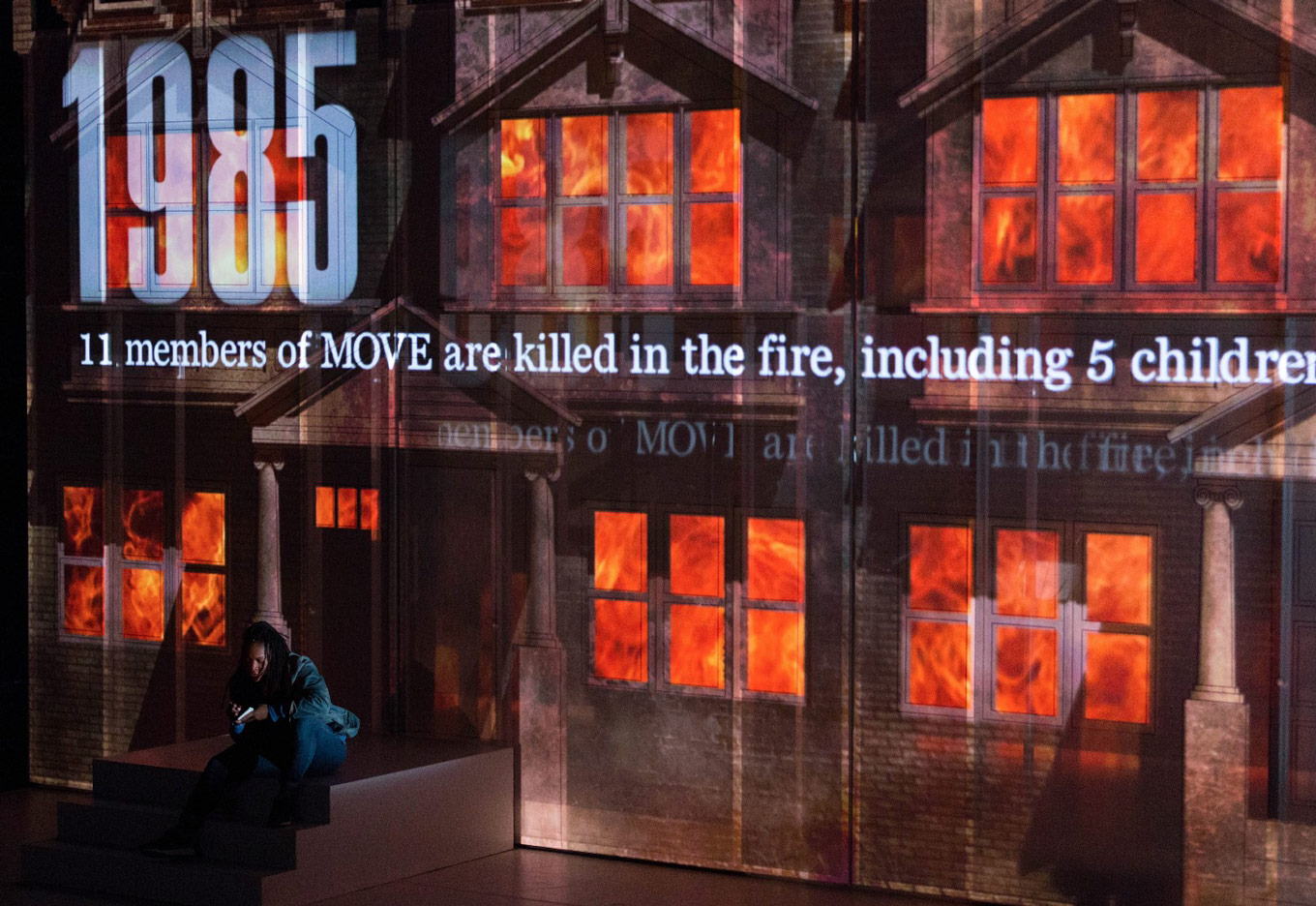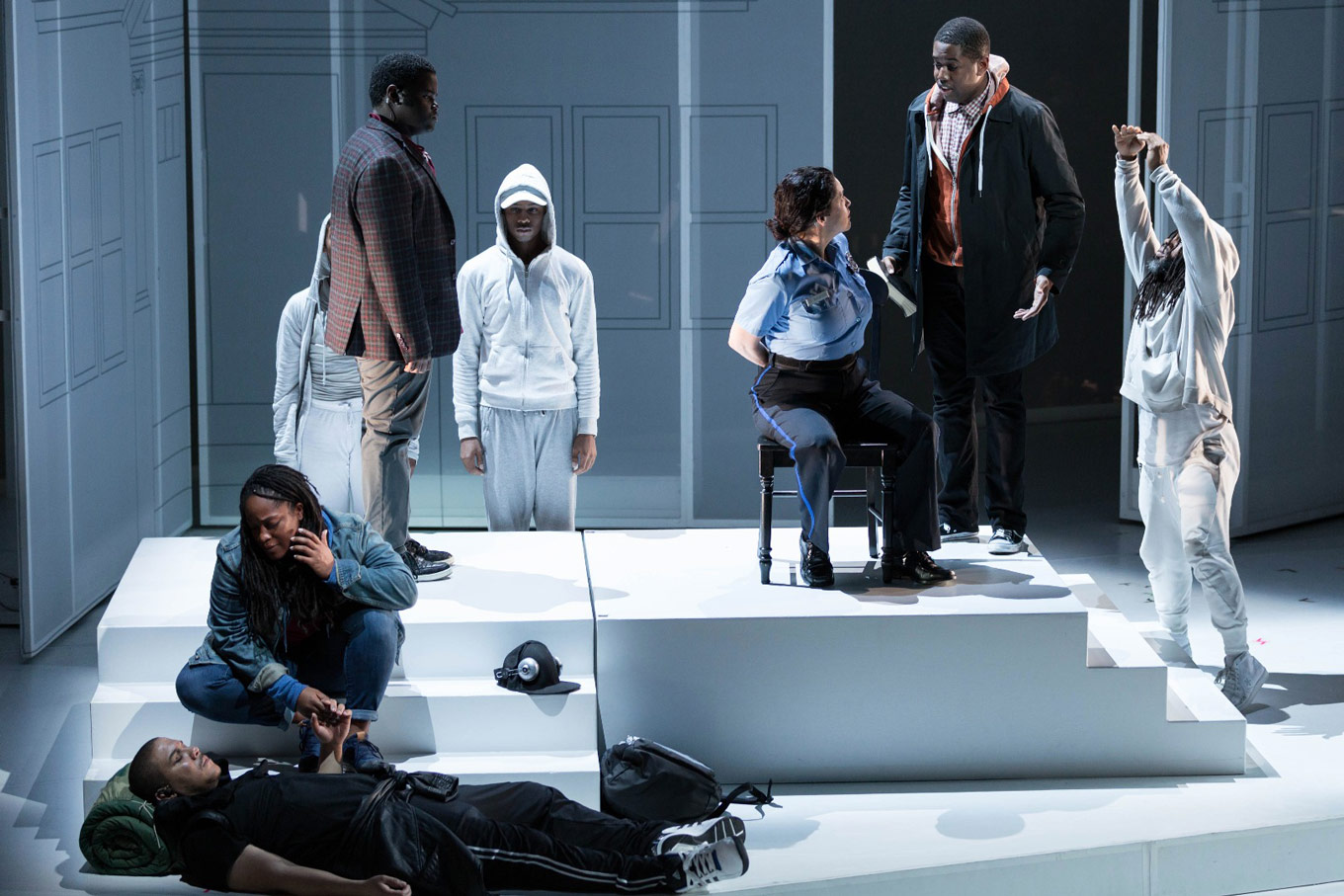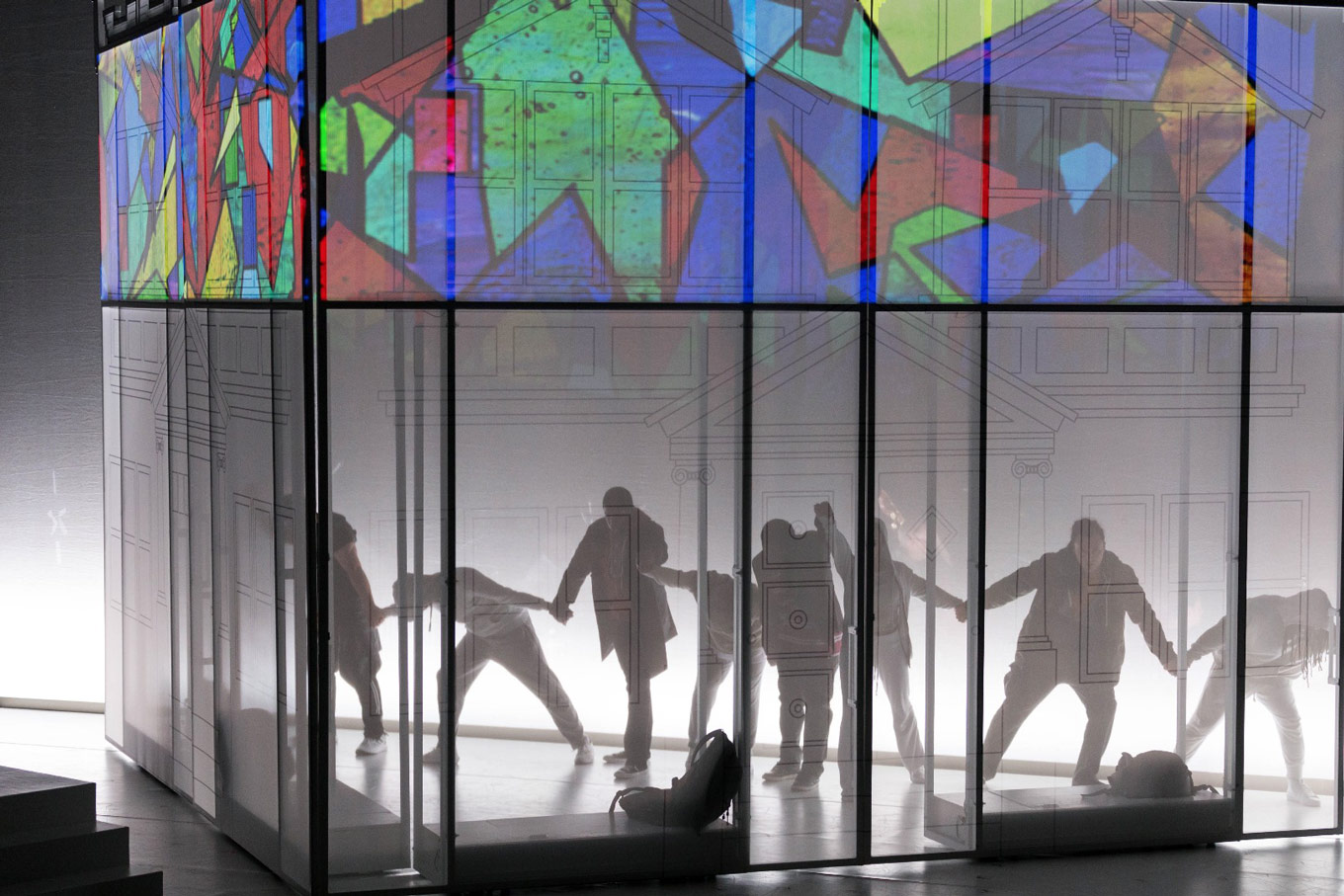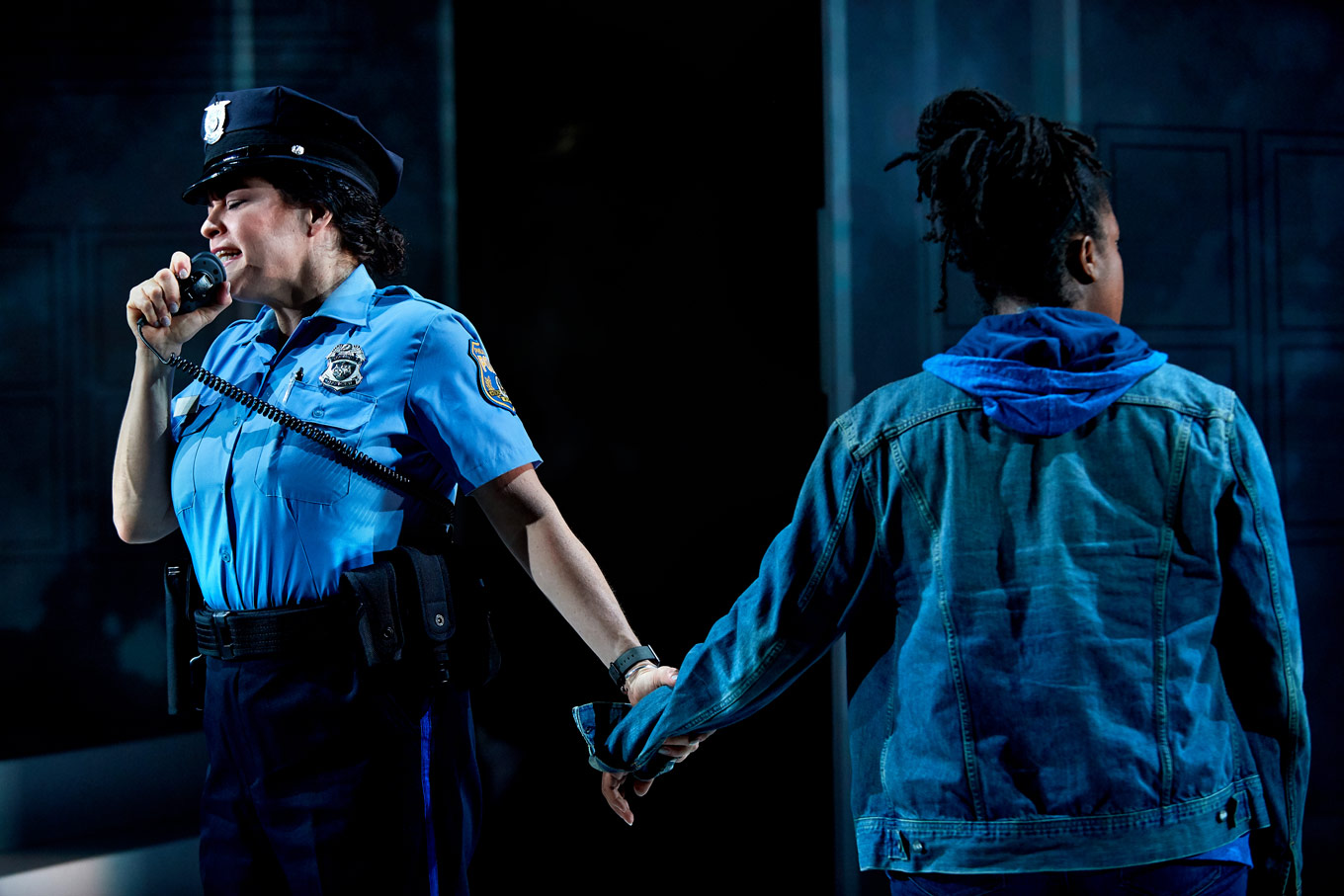
Conversations "of the most urgent nature": We Shall Not Be Moved
ReviewSometimes opera transports us to another place where we can temporarily forget about the troubles of our world. Other times, our beloved art form forces us to confront some of the most prevalent controversies of our time. We Shall Not Be Moved premiered last night at the Wilma Theater, marking the third night and second world premiere of Opera Philadelphia’s O17 festival. Brought to us by a true powerhouse creative team, which includes composer Daniel Bernard Roumain, librettist Marc Bamuthi Joseph, and legendary director, choreographer, and dramaturge Bill T. Jones, this groundbreaking and fearless work defies conventional opera in every aspect. As an innovative new piece, We Shall Not Be Moved takes on many of today’s social justice issues, and boldly brings them to the forefront.

We Shall Not Be Moved is set in North Philadelphia and follows a fictional narrative that feels more real than made-up, and is all too familiar to the world that we live in. Lauren Whitehead, who commands the role of Un/Sung, is the leader her family, a group of teenagers. Whitehead’s spoken word powerfully grabs you and unapologetically demands attention. When she asks “Who cries for the brown girl?” you can’t help but feel that she is asking you this question directly.

The other members of the family are John Blue (John Holiday), John Little (Daniel Shirley), John Mack (Adam Richardson), and John Henry (Aubrey Allicock). Each member of the family brings their own variety of unique and beautiful sounds to the fabric of the piece. Countertenor John Holiday sings with a gorgeous and focused tone. Tenor Daniel Shirley beautifully sings lyric lines and also speaks with great dramatic effect. Baritone Adam Richardson consistently sings with a warmth in his resonance, which only adds to his character’s gentle spirit. Bass-baritone Aubrey Allicock has a tremendously engaging sound that carries moments of heartbreaking tenderness.

Conflict arises early on between the family of five teenagers and a police officer, played by mezzo soprano Kirstin Chávez. Through her unbreakable connection to her character, Chávez pulls you in from the first line she sings. The story is brought to life with breathtaking layers of light, sound, movement, and music. The truth reveals itself as the most important and powerful character in this work. A multifaceted artistic vocabulary propels us forward through the plot, never slowing down. Roumain’s score enhances the already powerful story and gives it remarkable momentum, which the audience undoubtedly feels. The music is an incredible feat of effective complexity, and it involves genre-defying elements of hip-hop, spoken word and more. Conductor Viswa Subbaraman leads the orchestra through this difficult score and its many styles with ease.

We Shall Not Be Moved asks hard questions about race, gender, flaws in our education system, and more. This work brings up parts of history that many would have us sweep under the rug. Great art has the ability to teach us the difficult lessons our education has deliberately excluded. After the performance was over, Bill T. Jones said that he wanted this opera to start a conversation. Without a doubt, We Shall Not Be Moved accomplishes just that; and the conversations sparked by this work are of the most urgent nature.
We Shall Not Be Moved plays through September 24. For details and ticket information, click here.


Comments